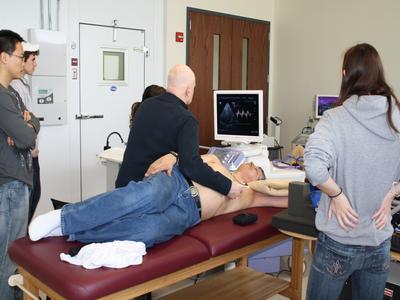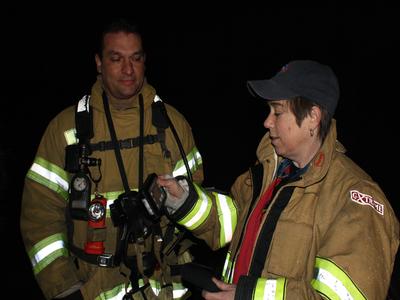Effect of Aspirin on Hemostatic and Vascular Function after Live Firefighting
Summary
Funding provided by: Department of Homeland Security, United States Fire Administration - Assistance to Firefighter Grant Program: Fire Prevention and Safety Grant
While sudden cardiac events are the leading cause of acute line of duty death in the fire service, deaths due to sudden cardiac events increase as age increases. Acording to NFPA statistics, approximately 90 percent of all fire service fatalities attributed to sudden cardiac death occurred in firefighters over the age of 40 years. Strenuous activity can serve as a trigger for sudden cardiac events and firefighting activity increases the relative risk of sudden cardiac events to 10-100 times that of non-emergency station duty based on research conducted at Harvard. Aspirin has strong antiplatelet activity, profibrinolytic effects, and has multiple beneficial effects on the blood vessels. Given all the medical evidence, aspirin is an attractive potential intervention.
In this project, we studied the effects of acute and chronic aspirin interventions on vascular and hemostatic function before and after live fire fighting activities in order to assess its ability to reduce cardiovascular risk post-fire suppression for the segment of the firefighter population that is most at risk for sudden cardiovascular events (over 40 years old). We employed a double-blind fully crossed-over study to investigate the effects of aspirin administration (acute and chronic) on cardiovascular function (vasculature, blood and inflammatory markers) of firefighters before and after short term firefighting activities. One arm of the study investigated the effect of an acute, one-time dosing of aspirin (81 mg), while the other arm investigated the effect of firefighters who use low dose aspirin on a daily basis. Firefighters were measured before and immediately following 18 minutes of firefighting drills performed in training structures that contained live fire.
Results of this study provide important new information regarding recommendation of aspirin therapy in the Fire Service. Significant reduction in platelet activation was found after firefighting activity with acute and long term usage of aspirin, with 2 week supplementation have a significantly larger impact on platelet function. No significant impact on functional clotting time post-firefighting regardless of aspirin usage. Aspirin supplementation, both acute and chronic, did not change vasodilatory capacity after firefighting.

